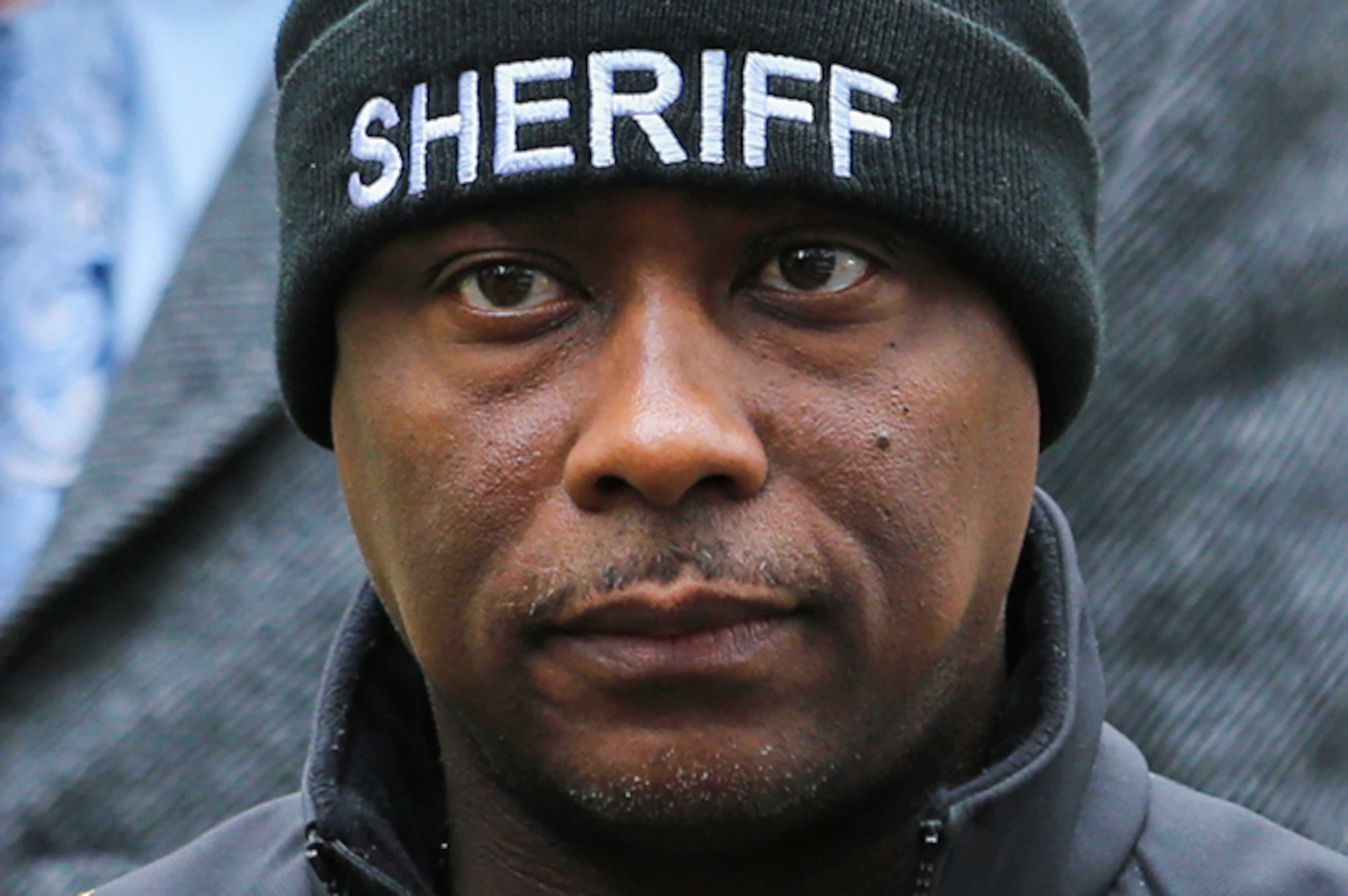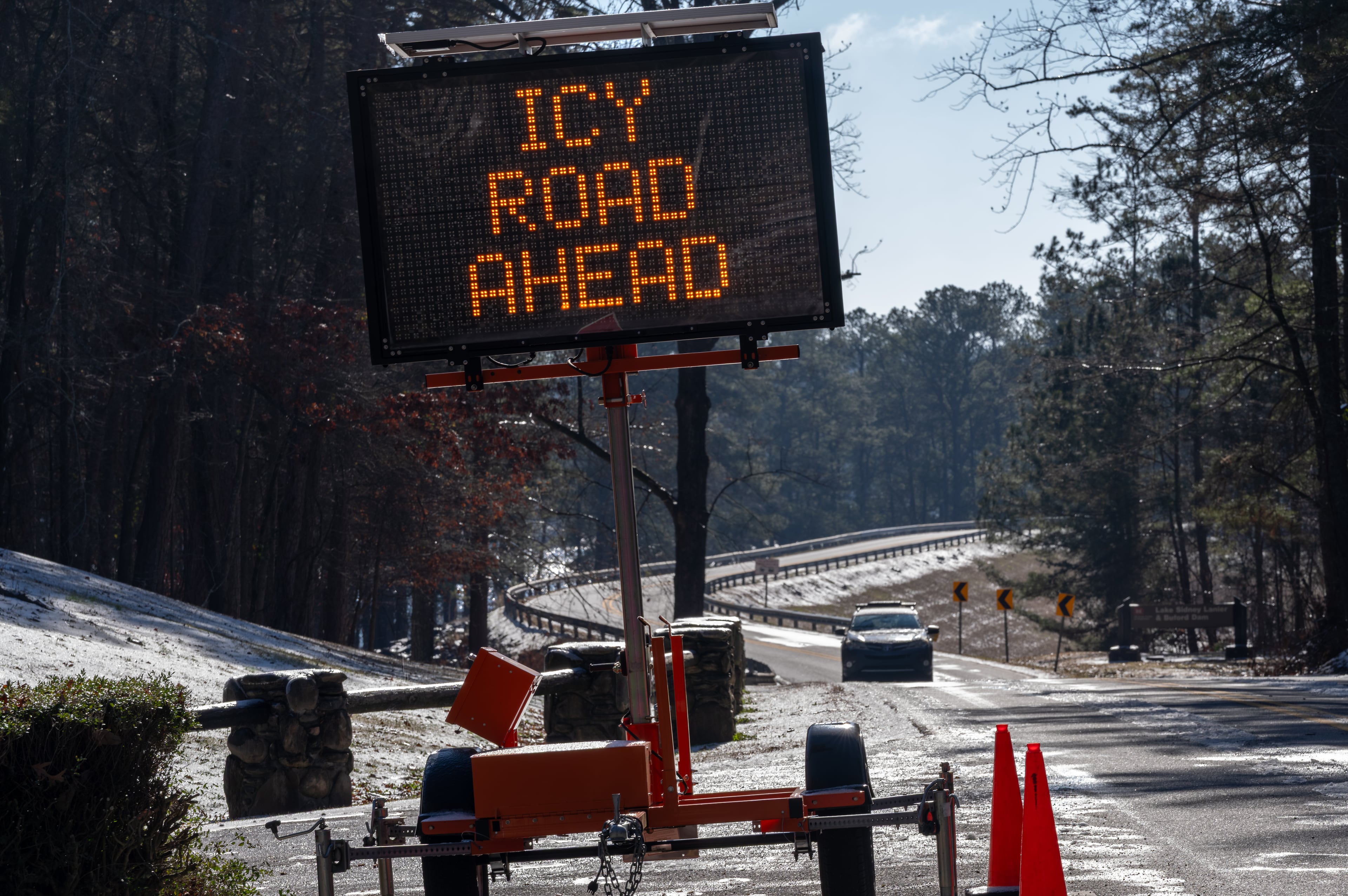Atlanta business owner guilty of fraud, theft in $156M FEMA fraud case

It took a jury just over three hours Friday to find Atlanta business owner Tiffany Brown guilty on charges accusing her of two scams in which prosecutors said she made up lawyers, a business settlement and more in connection with landing a government contract in the wake of Hurricane Maria.
The jury found Brown guilty on 32 counts of fraud, theft and money laundering in association with a $156 million Federal Emergency Management Agency contract. Brown sat motionless as the verdict was read aloud in Atlanta’s federal trial court.
Prosecutor Alex Sistla asked that Brown be remanded in custody until her sentencing on April 22, telling Judge Thomas Thrash Jr. that Brown’s crime included forging documents and creating fraudulent materials and personalities, including two fictitious lawyers.
“She’s a significant threat to the safety of the community,” Sistla said, adding that Brown faced more than a decade in prison and had a high chance of fleeing.
Thrash said it was a close call, but he allowed Brown to remain on bond until her sentencing. He ordered that she be subject to electronic location monitoring and periodic auditing of her financial transactions. She’d already surrendered her passport when granted bond after pleading not guilty in October 2022.
“She’s got to understand that if she does anything remotely similar to this I’m going to take her into custody immediately,” the judge said, referencing Brown’s convictions.
The verdict came after 22 prosecution witnesses, including FEMA officials, an FBI agent and Brown’s former attorney, testified against her. Brown chose not to present a defense. Outside the jury’s presence Thursday, she told the judge why she wasn’t testifying.
“This has been a long seven years and I do not believe I could manage my emotions,” Brown said through tears. “This has been very hard and I’m just trying to get through it.”
Brown told the judge she has an undergraduate degree from Spelman College, a master’s degree from Clark Atlanta University and a doctorate from Walden University, as well as alumni status at Harvard Business School.
Her former attorney and friend, Alcide Honoré, testified Wednesday that Brown had routinely made more than $10 million a year from government contracting until FEMA terminated her $156 million contract in October 2017 and barred her from contracting for seven years.
Brown had promised FEMA in the immediate aftermath of Hurricane Maria that she could provide 30 million self-heating meals in 30 days, at a rate of 1 million daily. But after securing the contract on Oct. 3, 2017, Brown only managed to have 50,000 nonconforming dehydrated meals delivered to Florida destined for Puerto Rico, prosecutors said.
“Had FEMA known that she didn’t have trucks, she didn’t have food, she didn’t have anything, they would have terminated the contract,” Sistla said during his closing arguments Thursday. “This was not a mishap. This was outright fraud from the start.”
FEMA did end Brown’s contract on Oct. 19, 2017, but paid her $255,000 for the 50,000 meals that were delivered. Carolyn Ward, FEMA’s contracting officer who dealt with Brown, testified that the payment wouldn’t have been made if the agency had known then that the meals were insufficient.
Brown was convicted on 11 counts of major disaster fraud, 14 counts of wire fraud, three counts of money laundering and a single count of theft of government money in relation to the FEMA contract. She was also convicted on three additional counts of wire fraud stemming from her subsequent efforts to secure loans worth more than $1 million based on a $6.5 million lawsuit settlement she invented.
Honoré testified about how Brown hired him in March 2019 to receive in his escrow account the settlement she said she’d negotiated with Ohio-based freight company Total Quality Logistics, which she blamed for the loss of her FEMA contract. Honoré said he vouched for Brown when she sought loans from the Legal Funding Group of Georgia based on the forthcoming settlement.
Honoré cried while testifying about how Brown had duped him by inventing lawyers “Jerry Rosenstein” and “James Wilson,” whom she said were in-house counsel for her company, Tribute Contracting, and Total Quality Logistics, respectively.
“I trusted her,” Honoré said of Brown. “She was a friend.”
The chief legal officer for Total Quality Logistics testified at trial about the settlement being fake. And retired FBI agent Davida Law, who began investigating Brown in 2018, said Thursday there was no evidence that “Jerry Rosenstein,” “James Wilson” and other characters Brown had invented to give her scheme an air of legitimacy had ever existed.
Those characters were alter egos of Brown, Law testified. She said every associated email account, telephone number, internet protocol address and bank account led back to Brown, who had used the Legal Funding Group loans to attend the Coachella music festival in California and go shopping at Louis Vuitton stores in Atlanta, Paris and Dubai, where she spent about $41,000.
Joe Austin, a court-appointed attorney for Brown, told the jury Thursday that she never intended to cause harm or loss to FEMA. He said Brown thought she could satisfy the contract and did everything she could to make that happen. He said Brown “wasn’t behind the fake settlement” and, like Total Quality Logistics, fell victim to “email intrusion.”
“The government has made a terrible mistake,” Austin said.



